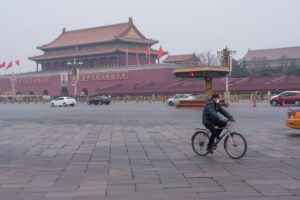At the end of a week in which Virgin Atlantic grabbed the headlines for flying from Heathrow to the USA on 100% sustainable aviation fuel (SAF) they find themselves brought back to earth with a bump as climate charity Possible take aim at the airline – and British Airways – for greenwashing.
Possible’s lawyers have filed formal complaints against both businesses using a formal complaint process via the Organisation for Economic Co-operation and Development (OECD) which can be used against international businesses making misleading claims about their climate impacts.
Furthermore, Possible are circulating a petition which will be delivered to the inboxes of a number of senior figures at both airlines, figures such as Carrie Harris, the Director Of Sustainability at British Airways and Juha Järvinen, Chief Commercial Officer at Virgin Atlantic.
The petition reads: ‘British Airways claims to “have a long history of managing and reducing our carbon emissions and a clear roadmap to achieving net zero carbon emissions by 2050”. But the reality is that their use of jet fuel (their main source of emissions) and their Scope 1 emissions (both absolute and net) and Scope 3 emissions increased from 2016 to 2019.
‘Virgin Atlantic claims to be “creating one of the youngest, greenest fleets in the sky”, but a comparison of emissions from European airlines found that Virgin Atlantic is “among the most-polluting airlines in Europe”, being the eighth most polluting airline in 2019.’
It should also be noted that Virgin’s attention-grabbed SAF flight was met with cynicism by many. A Policy Briefing by the Royal Society earlier this year observed that replacing all the aviation fuel used in the UK with biofuels – as used by the Virgin aircraft – would require more than half of the agricultural land available.
Possible also – and not for the first time – take aim at the companies’ frequent flyer programmes, linking to research published earlier this year that found reaching Gold Guest List status with British Airways is comparable to putting an extra 38 cars on the road. The campaigners are currently calling for the opposite to frequent flyer perks – a frequent flyer levy, by which the more that someone flies in any given year, the more they pay. A system under which, they say, air travel would be reduced without making flights more expensive for the rest of the population, who don’t fly often.
On top of this, Possible offer tips on flight-free journeys, encourage businesses to offer their staff extra time off work for flight-free holidays, and campaign for practical policies to reduce air travel.
If you’re considering a career in the airline industry, explore job opportunities at British Airways

















Personally I will advocate for a Frequent Flyer levy as the others who have to fly for some good reason other than a holiday will pay less. It will eventually reduce the number of flights and less pollution and for a better environment